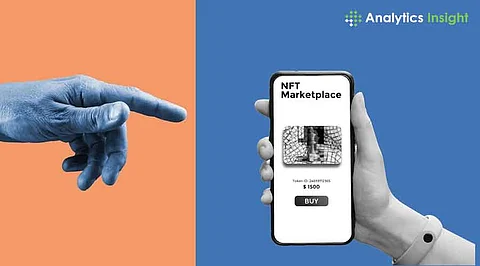

NFTs have quickly evolved as one of the most promising players in the digital art and collectibles market. These unique digital assets, secured on blockchain technology, are now disrupting industries like real estate, ticketing, gaming, and more. By offering secure, verifiable ownership and a means for transparency, NFTs have now become integral to many sectors.
NFTs are creating a buzz in real estate by tokenizing properties, thus facilitating fractional ownership. Investors can purchase shares of a property via NFTs, bypassing traditional barriers such as hefty down payments. Transactions are secured, and processes such as title transfers are simplified through the blockchain. Virtual real estate properties in the metaverse are also gaining popularity. It opens up new avenues in digital property ownership.
NFTs are changing how event ticketing works because they eliminate fraudulent attempts while making it possible to transfer tickets fluidly. Since an NFT ticket is unique and logged within a blockchain, the chances of creating fake ones narrow down. There's also an advantage since the event creators will gain a percentage for further selling in the resale. These NFT tickets also carry some exclusive advantages and even digital collectibles coupled with the event.
In gaming, NFTs allow players to own and trade in-game assets such as skins, weapons, or virtual land. Unlike traditional games, where assets are locked to a single game or platform, blockchain-based NFTs offer interoperability. This means players can transfer their assets between different platforms or sell them for real-world value, creating a dynamic virtual economy.
Today, NFTs are being used to track goods throughout supply chains and authenticate them. High-end luxury brands utilize NFTs to ensure their products are genuine, helping to reduce the prevalence of counterfeit items. Each NFT acts as a digital certificate of authenticity, providing customers with detailed information about the product's origin and its journey through the supply chain.
NFT artists and creators use NFTs to maintain control over their intellectual property. Musicians, for example, can release exclusive albums or songs while granting buyers ownership rights or special access to additional content. Additionally, creators earn royalties each time their work is resold through NFTs.
NFTs have the potential to securely store and verify medical records in healthcare. Patients will be able to own their data and share it with healthcare providers as needed. Additionally, NFTs can transform digital identity by providing verifiable credentials for employment, education, or certifications.
Charities and institutions are using NFTs to raise funds in innovative ways. By associating NFTs with specific campaigns or causes, they allow supporters to donate while receiving a digital token as a keepsake. These tokens can also include interactive features, which enhance engagement with the audience.
NFTs are quickly expanding beyond their original applications, creating numerous opportunities across various industries. They are transforming concepts of ownership and value in the digital era, with uses ranging from fractional property investments to counterfeit-proof event tickets and verified medical records. As the technology continues to evolve, its adoption across different sectors is expected to increase, potentially making NFTs a fundamental part of our digital future.
